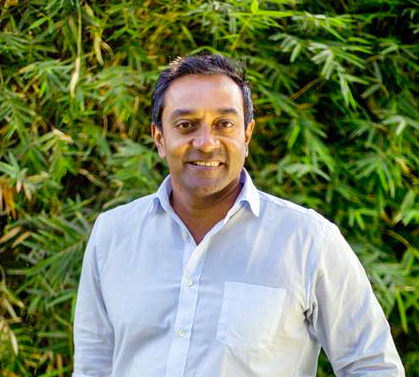
For more than 30 years, Conservation International has been protecting nature across the globe — they are currently working with 2000 partners in 30 countries to build a healthier, more prosperous and more productive planet.
ODP: Sanjayan, as the leader one of the largest conservation organizations in the world, what are the biggest challenges you face today?
MS: There are three major challenges. The first is attracting and retaining top people in countries like South Africa, Kenya, and Indonesia — the front lines of where we work — because we must compete with the private sector there. The second is a lack of sufficient coordination among the environmental NGO community. We all embrace the large global goals for progress, but we lack a way to divide and conquer together so that we can each take on a portion of the work and work in a much more concerted way. Finally, we lack sufficient private and philanthropic donations to leverage limited public funding. The outpouring of support to rebuild Notre Dame has been amazing. In that same time period, a species somewhere in China likely went extinct. The world is full of amazing natural wonders that are disappearing. We need the same kind of sustained and commitment of support to care for the Cathedral Earth.
ODP: Is there a country or region of the world where you are seeing great progress?
MS: We are seeing interesting progress in Latin America, particularly Colombia, Ecuador, and Costa Rica. One other bright spot is the West Papua region of Indonesia, which has recently created additional marine protected areas. I am also encouraged by the real progress we are seeing on plastic pollution and the public’s demand for less plastic in products and packaging. Finally, the great strides being made to improve the management of fisheries in certain parts of the world gives me a reason for hope.
ODP: How significant is the loss of U.S. leadership in global conservation? What impacts are you seeing as a result of that void?
MS: The absence of strong, positive leadership by the U.S. around the globe is certainly being missed right now. But that loss has provided an opening for corporations, developing nations, and indigenous people to step in and lead. But if it continues, in the long run, it will be devastating. It means there are certain problems that will not be solved. Moreover, it is a terrible thing for the U.S. itself, because the U.S. will be conceding its leadership and all the economic opportunities that would have been ours if the U.S. had led the world in creating a carbon-free economy. The U.S. will be on the losing end of clean energy jobs.
ODP: Do you believe the global movement on climate change, which is being spearheaded by young people like the Sunrise Movement in the U.S., will be able to turn the tide in time on climate change?
MS: It is the nature of humanity that one generation passes on certain problems to the next one to solve. For this generation, that problem is climate change. But I believe, as does our one of our Board Chairs, Harrison Ford, that what we are seeing now is fundamentally different — we have reached a tipping point. And there is no doubt that young people will be the critical voices in turning the tide.
ODP: Besides the energy and passion of young people behind the climate movement, what gives you hope for the future of the planet this Earth Week?
MS: The wondrous ability of nature to persist and adapt, even in the face of multiple stressors caused by humans. I landed recently at the airport in Orlando, Florida — one of the most populated and built-up places in the world — and was amazed to see a giant alligator in a lake on the airport grounds. For an apex predator to be able to co-exist with humans in a busy place like Orlando left me feeling optimistic about the awesome resilience of nature. I am also buoyed by the rise of the voices of local communities and indigenous peoples who are increasingly effective in demanding conservation on the local, national and even global levels. There is much more work to do, but we are making progress.
Thank you so much, Sanjayan, for all the work you do and your organization does around the world to keep the planet and all its inhabitants vibrant and healthy! We too are feeling optimistic now.
April 23, 2019 » climate change, climate movement, Conservation International, Earth Week, marine protected areas, nature, plastic


